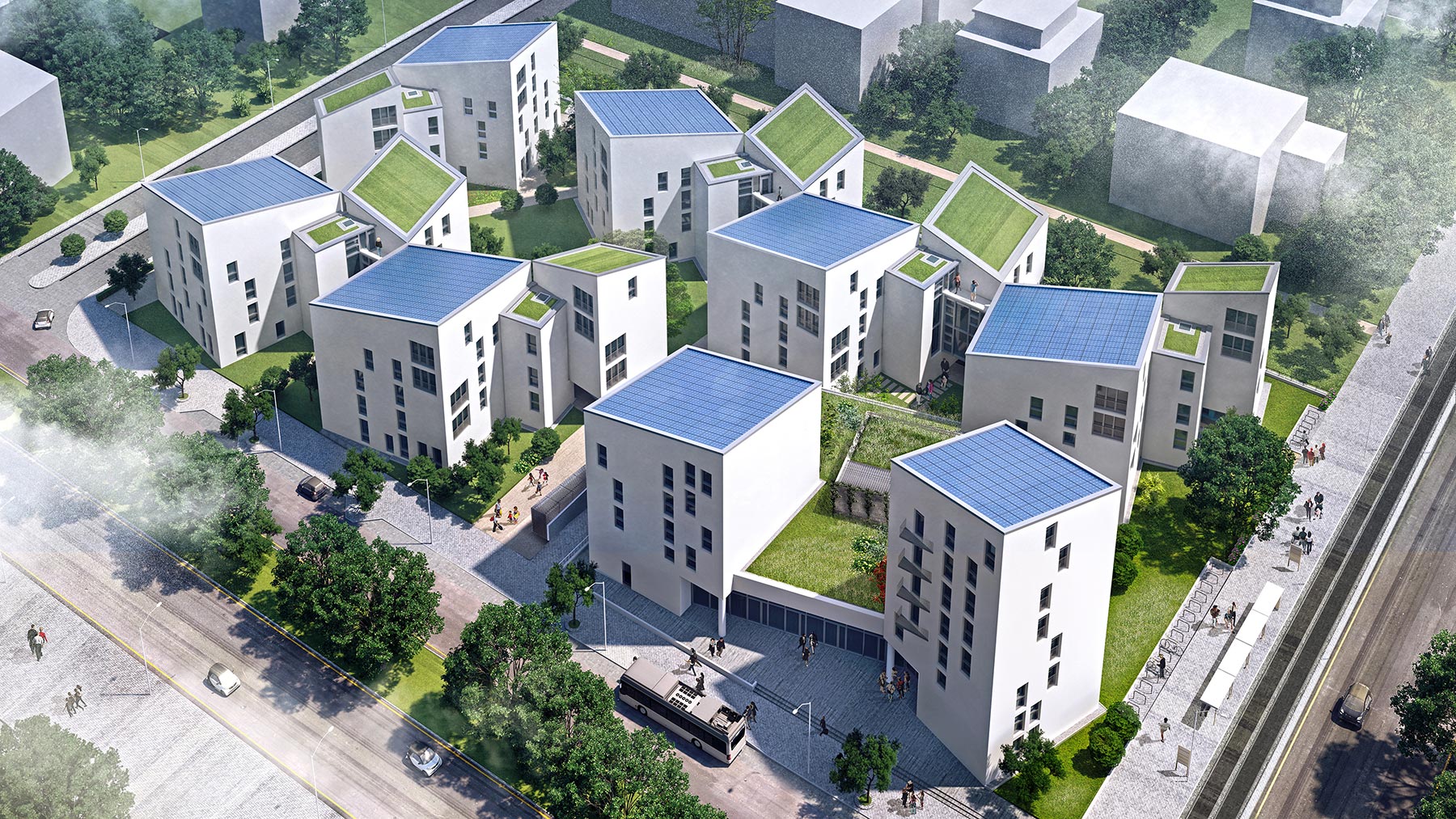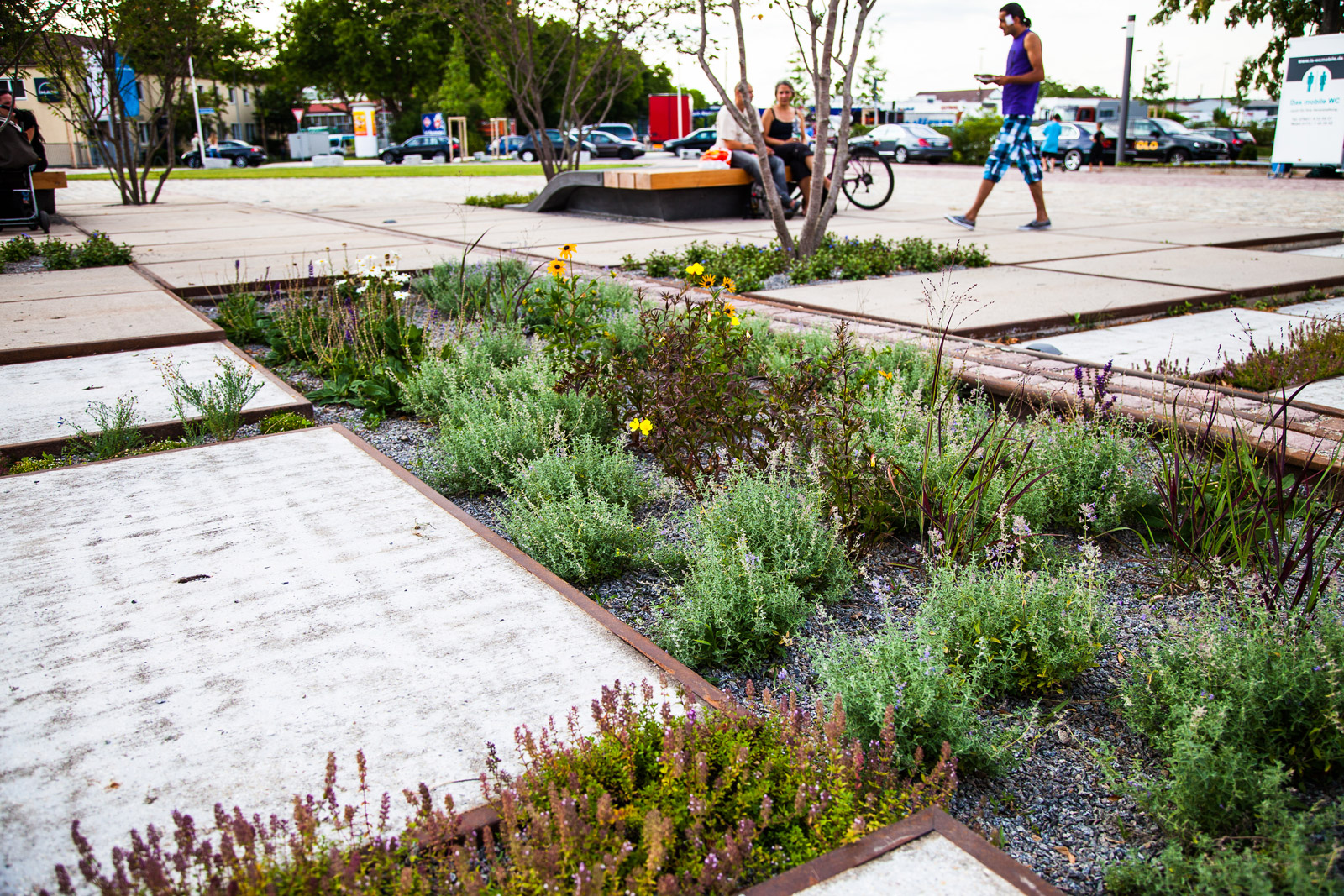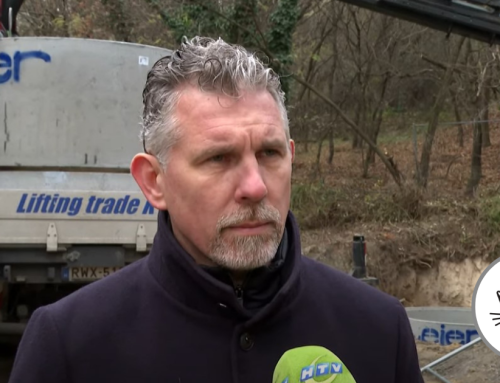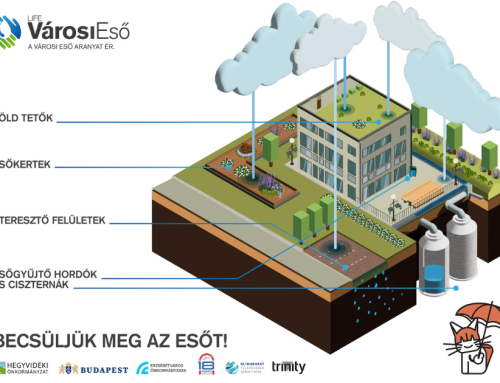Berlin’s land area has recently grown by leaps and bounds and is facing increasing climate challenges. The city’s leadership is looking at a number of ways to prepare for the challenges ahead. One of these solutions is to focus on decentralised, nature-based solutions for rainwater management, with the creation of the Berliner Regenwasser Agentur (Berlin Rainwater Agency) in 2018.
Nature-based, decentralised rainwater management is vital for future sustainability
As Berlin continues to build and expand, nature-based stormwater management is crucial for the sustainability of the city. Stormwater management also has a key role to play in managing the effects of climate change, such as more intense rainfall and heat waves. More emphasis should be placed on natural stormwater management and an integrated approach to solutions, both in new developments and in existing neighbourhoods.

Pictured: the Future Living® Berlin building project is creating a future model for connected neighbourhoods: the design principles are “Smart, sustainable and accessible for all”. Decentralised stormwater management was an element of sustainable architecture that was a prerequisite for construction and was profitably integrated into the concept.
The Berlin Stormwater Agency aims to promote nature-based stormwater management
The strategic goal of the Berlin Stormwater Agency is to develop a creative, efficient and proactive platform that brings together all actors in the city and promotes available technical and urban solutions for natural stormwater management. The agency also aims to inform and educate the public, support professionals and authorities in implementing stormwater management solutions and share professional experience.
The Berlin Stormwater Agency kernaufgaben (main tasks)
The main tasks of the Agency are:
- Educate the city’s residents and decision-makers about the importance of proper stormwater management.
- Support and promote the “1000 Green Roofs” programme and the separation of buildings and land from the sewerage network.
- Inform and support stakeholders – planners, developers, public authorities and residents – about the implementation of stormwater management during the planning process.
- Provide technical advice on the potential impacts and options for decentralised stormwater management solutions, taking into account current standards and regulations.
- Clarification on the costs, economics, financing and support programmes for stormwater management.
- Information and advice on the links and impacts of stormwater management, water protection, climate change, biodiversity and nature conservation.

Pictured: the Zollhallenplatz in Freiburg combines many different uses: it provides space for recreation, pedestrians and cyclists, festivals and markets, and it completely retains rainwater with plant-covered infiltration areas, ditches and riffles. This is an example of multifunctional and sustainable urban design.
Source : https://regenwasseragentur.berlin/
The cover photo shows Evelyn Katharina Branz, of the Berlin Rainwater Agency.





Leave A Comment